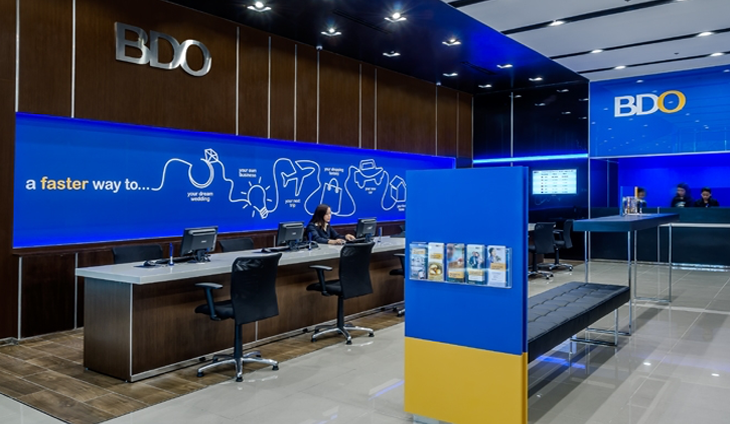Filipinos must have heard from their parents, professors or neighbors that very few people got rich through income derived from employment. So trying out a business might be a worthy alternative. After all, reading the success stories of folks like Mang Inasal’s founder or the rags-to-riches tale of Filipinos working abroad are relatable to many of us.
But despite that promise of prosperity through entrepreneurship, many Filipinos are unable or unwilling to make that pursuit. Let’s try to explore the possible reasons why many of us chose to be employed than put up our own business.
Table of Contents
Filipino business and the challenges we face
 The tepid attitude from schools to encourage entrepreneurship among students
The tepid attitude from schools to encourage entrepreneurship among students
Despite TV shows that highlight successes among business-minded people — startups, family-owned businesses, and accidental entrepreneurs — that’s as much information readily available to inspire us as we can get. School may teach us how to do business but less on why we should do business.
Students are generally trained to become employees and less as employers. If ever we embark on a business, we Filipinos are content on doing side projects and small gigs and devote more time to our full-time jobs.
Business ideas may be taught but they are often confined to theoretical concepts and less on making them happen in real life.
The tide has changed and schools have recently become more vocal in encouraging students to think outside the box and explore business opportunities. But without support from stakeholders — government agencies, corporate partners, and organizations — it remains a big challenge to get students to switch from attending job fairs to seeking seed capital to finance their ideas.
We choose rich quick schemes
During the height of the pandemic, where incomes are shaky and jobs are far from stable, we try to find backup plans as a support system. Scams or misleading business offers are all around us. These schemes not only prey on the poor and uneducated. Even the financially literate and business savvy can easily become victims with the lure of earning quick bucks effortlessly.
For example, many Filipinos flocked to invest in Kapa group after it promised quick return on investments and have social proof to back it up.
We prefer stable, regularly paying jobs
Who doesn’t want to get paid regularly for doing the same job and less exposure to risks? Those who simply want to get by daily. We have our expenses: utilities such as electricity or mobile phone load, food, rent, clothing, and entertainment. Having a regular job ensures that we don’t go past the bill deadline and look forward to receiving our monthly sustenance.
We are happy to receive our monthly salaries and occasional bonuses during the middle and end of the year. Fixed-income earners may be getting the same amount every month, but they must also be careful with their expenses.
We think business requires more effort and resources
Yes, that’s correct. We have a lower appetite for business risks, yet we may be more willing to gamble on lottery tickets, giving us lower odds of winning. We think that business is tedious and requires more than just financial capital.
Indeed, setting up a business can be tough, especially in the Philippines which is hounded by fixers, corruption chronic red tape. While there is evidence of its existence, some of our beliefs might just be coming from word of mouth and less on research.

The environment does not encourage entrepreneurship
Growing up, the people around us might influence our career choices. We have a cousin who works abroad, an uncle who works in the government, or a neighbor who is a well-paid white-collar working for a multinational company.
Our decisions in choosing what course to take up in the university, what kind of careers to pursue, and what ideal companies to work for revolve around getting a job. Our friends in school might also think the same way and no subject about entrepreneurship is ever taught so being a businessman sounds like a big deal, and we are skeptical about us trying our idea.
In the country, promoting entrepreneurship isn’t so popular. Job fairs are more frequent than free business seminars. We might want to play safe and stay in that same job until we find a better opportunity — a higher paying job or opportunity to work overseas — but not to build and grow a business.
If an “investment business” is promoted, it might be multilevel marketing that involves selling beauty products while recruiting members to be part of someone’s “downline.”
We observe a poor support system for helping a business
For a business to grow and thrive, half of it is won with a sound business plan and capital. But the other half of it is the associated facility to support growth. For example, if someone wishes to establish a coconut water business, it might be best established close to the source of raw materials.
But if power interruption is a common occurrence within that location, putting up a generator could be more costly for the business. If the roads linking to the source of fruit and vegetable plantations are not well-paved, if they ever exist, that’s a huge logistical challenge that could drag sales down as an inefficient supply chain drags adds to overhead costs.
We have limited access to financial support
Financial aid from the government may be difficult to obtain, especially if a business is taking off and struggling to break even. Loans from government institutions and private banks often require collateral and are topped by prohibitive interest rates. Financial capital is readily available to more established businesses that don’t need to borrow.
The government, especially in the agriculture sector, is starting to initiate loans for small-scale businesses. But the offer must be made available across different business sectors.
In the end, some businesses resort to onerous deals with lenders, making the businesses more vulnerable to failure.
Entrepreneurs not having enough marketing skills
Business people need to wear multiple hats simultaneously: package and sell the product, provide great customer service, handle finances and take care of employees. Sadly, this is not a forte among many Filipinos who need to learn by experience. Lack of interest, training, and opportunities are often the roadblocks to acquiring enough traction to get the business going.
For example, when selling biko and puto in the neighborhood, the focus is often on the quality of the product and customer relationships. There may be less attention on scalability to grow the product line or expand production and innovation in packaging. Without getting assistance in handling the business, it can stagnate and may not be sustainable in the long term.
We find it challenging to find a suitable business partner
While many entrepreneurs are visionaries with a locked-in mindset to drive success to the business, they can also suffer from tunnel vision. They may lack a passion for managing resources such as business partners and employees.
For those riding their vision, this can be a temporary setback that can easily be overshadowed by later success. But once employees or suppliers feel shortchanged in the name of rapid growth, their productivity suffers and they eventually leaves the partnership.
For businesses founded by two or more partners, this can be a contentious affair especially if there is no clear definition of roles besides sharing the title as co-founders.
Conclusion
There are many challenges businesses will face as they try to establish a presence in the Philippines. While others have managed to eliminate the obstacles, many have failed miserably. And as more Filipinos see businesses falter, it adds to the build-up of skepticism around the difficult role entrepreneurs play.
Having these challenges identified is a good first step that should hopefully lead to addressing each of these issues.








